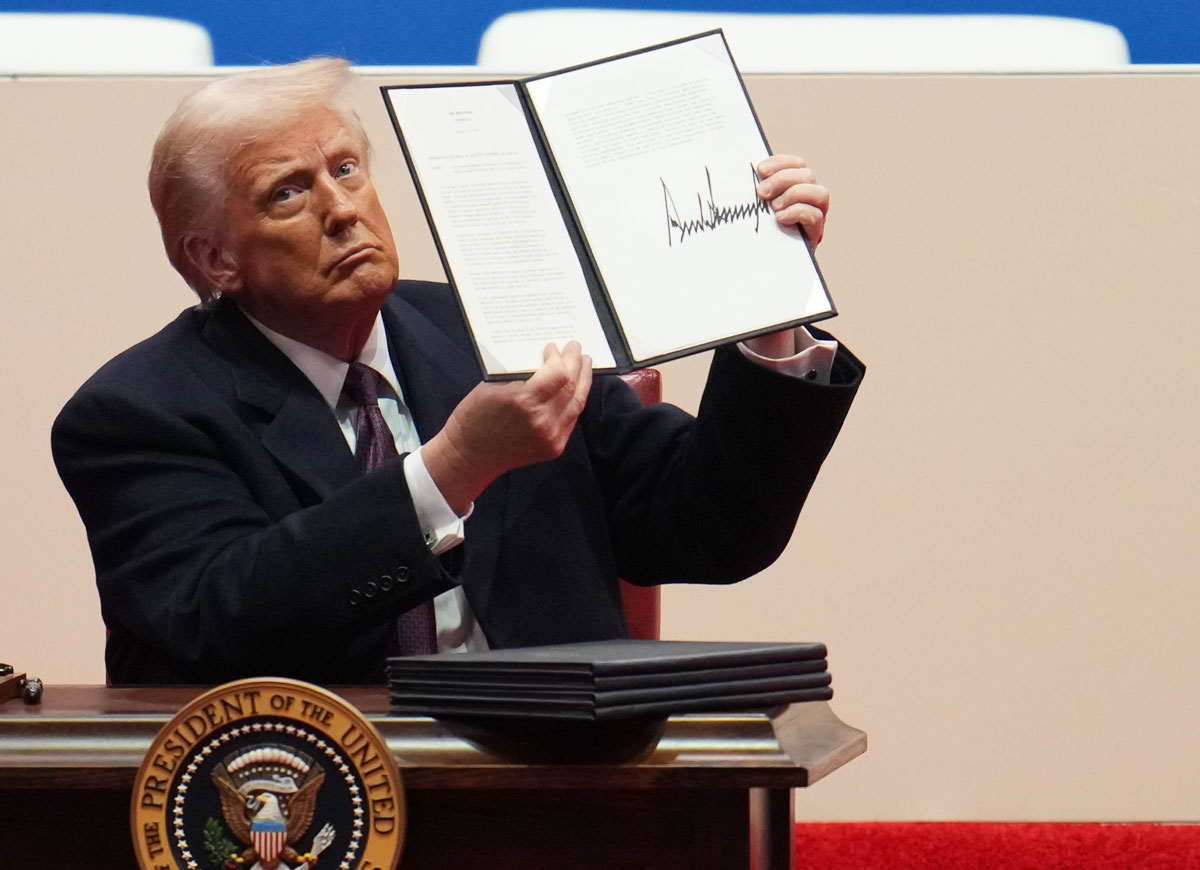

WASHINGTON, DC - JANUARY 20: U.S. President Donald Trump holds up an executive order after signing it during an indoor inauguration parade at Capital One Arena on January 20, 2025 in Washington, DC. Donald Trump takes office for his second term as the 47th president of the United States. (Photo by Christopher Furlong/Getty Images)
Immediately following President Donald Trump’s inauguration, he signed an executive order ending birthright citizenship. The right to U.S. citizenship has been automatically granted to any person born on U.S. soil for over a century. It is protected under the 14th Amendment of the Constitution of the United States, which says, “All persons born or naturalized in the United States, and subject to the jurisdiction thereof, are citizens of the United States and of the State wherein they reside.”
Trump plans to argue that the phrase “subject to the jurisdiction thereof” means that individuals born to undocumented immigrants are not under U.S. jurisdiction and, therefore, are not entitled to citizenship. This birthright applies to children born to undocumented immigrants, tourists, temporary work visas and those on student visas.
Trump wants to end birthright citizenship to prevent cases where pregnant women enter the country to give birth, allowing their children to gain citizenship automatically. He thinks that eliminating this practice would discourage illegal immigration, a long-standing goal of his.
It is unlikely that Trump’s executive order can overturn birthright citizenship, which most legal experts agree would require a constitutional amendment. This would require a two-thirds majority in the House of Representatives and the Senate and votes from three-quarters of the states. However, the president has the power to influence federal agencies, who could interpret the definition of “citizenship” more narrowly and complicate the process.
Subscribe to our free weekly newsletter!
A week of political news in your in-box.
We find the news you need to know, so you don't have to.
The American Civil Liberties Union (ACLU) sued the Trump administration over this issue, arguing that revoking birthright citizenship is unconstitutional.
The director of the ACLU, Anthony D. Romero, stated that denying citizenship to U.S.-born children will create “a permanent subclass of people born in the U.S. who are denied full rights as Americans. We will not let this attack on newborns and future generations of Americans go unchallenged.”
Other civil rights groups are expected to file lawsuits as well. However, any escalated cases would face a conservative Supreme Court with a 6-3 majority, which has been very favorable to Trump in the past.
Subscribe to uInterview’s free weekly email for the latest news & exclusive videos!
Let us know what you think of the story in the comments below – join the conversation!
Lindsey Langston, the 2024 winner of Miss United States and a Florida Republican state committee…
On Tuesday, Texas Attorney General Ken Paxton asked a judge to jail former Rep. Beto…
Steve Witkoff, President Donald Trump’s special envoy, is being criticized for “damaging incompetence” during discussions…
On Tuesday, the Trump administration requested a comprehensive internal review of eight Smithsonian museums, according…
Nvidia and AMD, two prominent U.S. tech companies, have made a deal with the Trump…
President Donald Trump responded forcefully to a Wall Street Journal article about a message he…